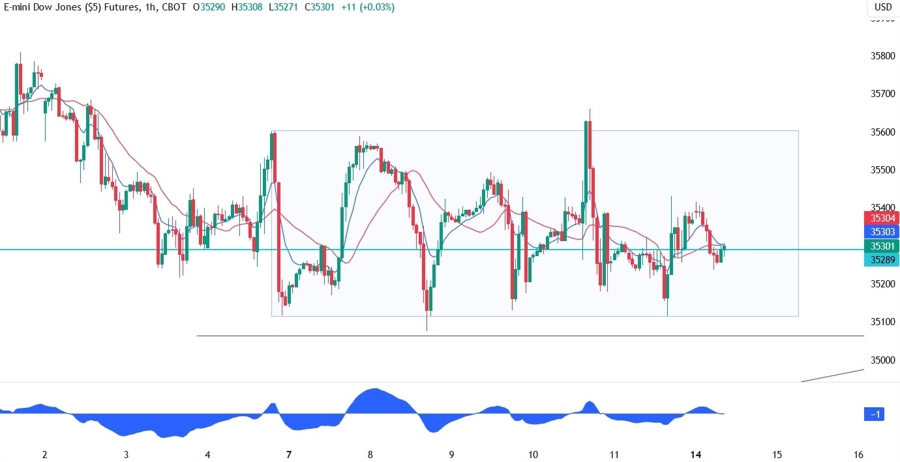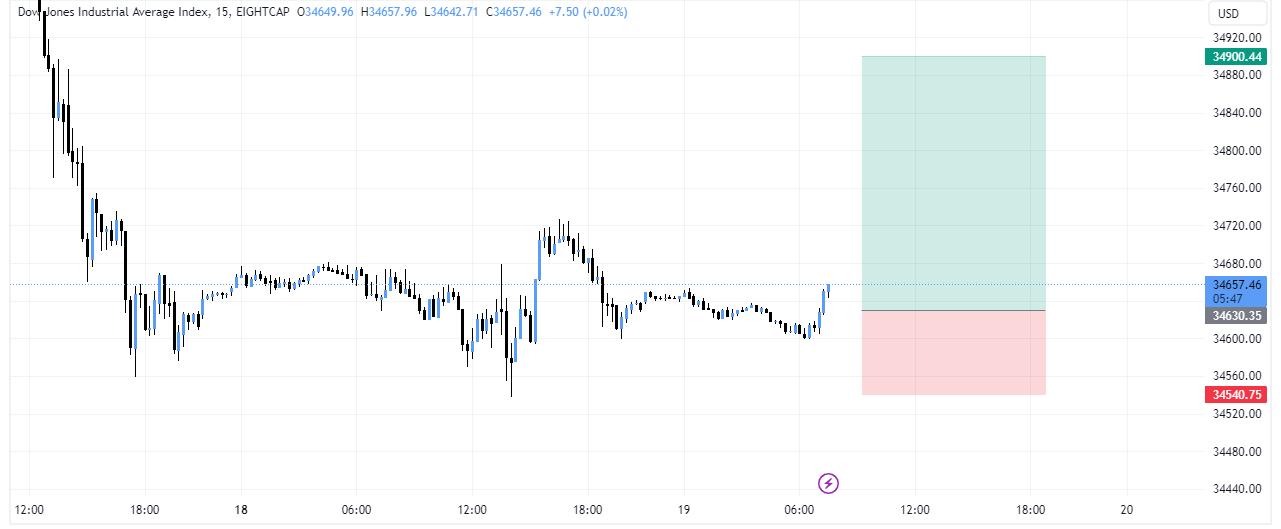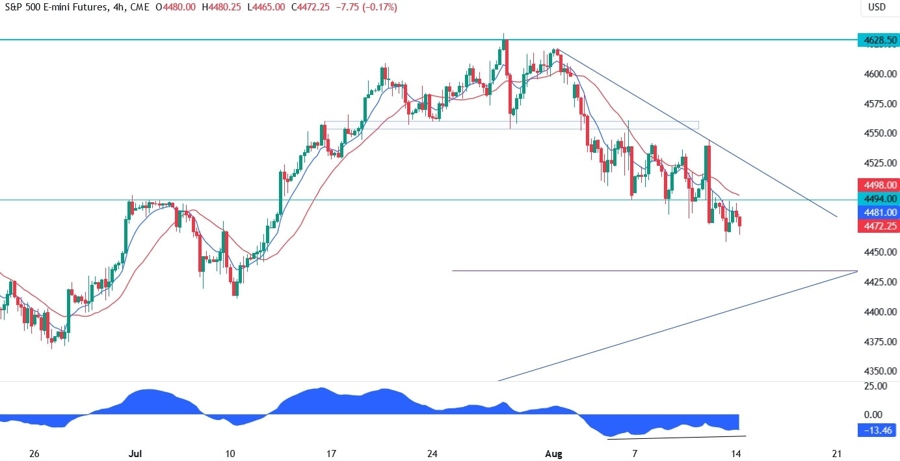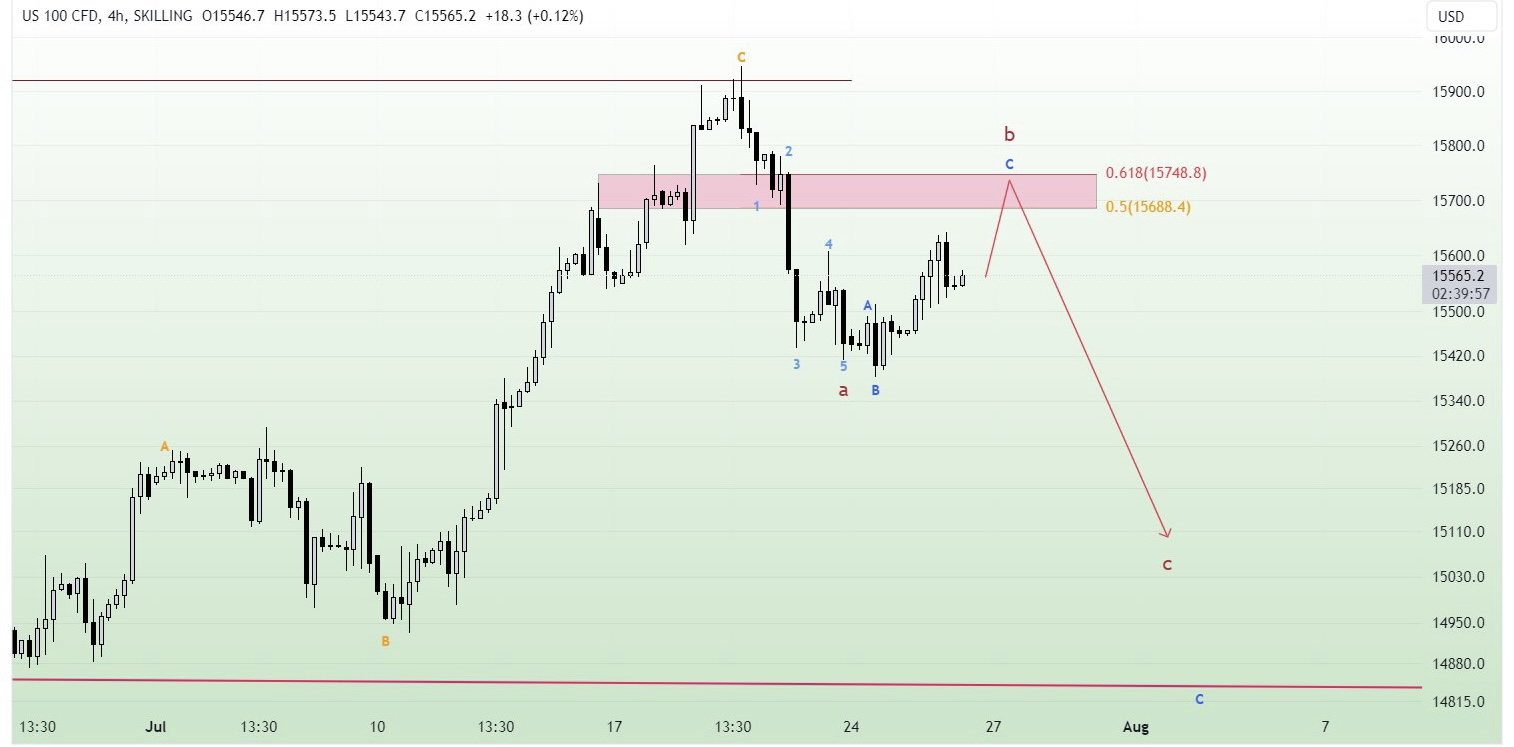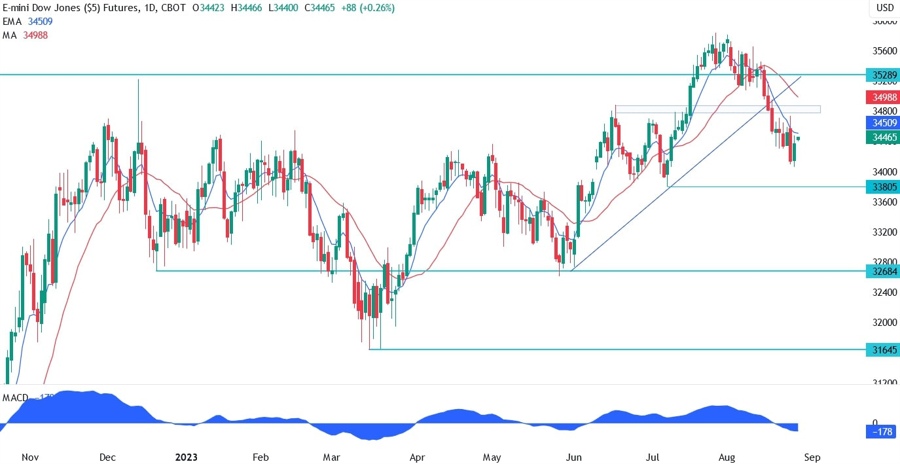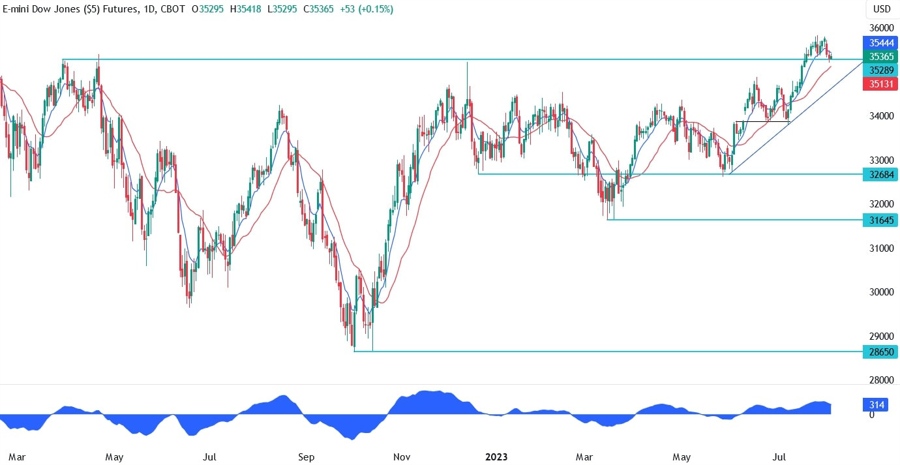FTSE All-Share Index
Parent Index
NA
Indices informations
Listed Exchanges
| London Stock Exchange |
Related Instuments
| FTSE 100 Index |
| FTSE 250 Index |
| FTSE 350 Index |
Sector Represented
| Health |
| Indutries |
| Energy |
| Investments |
| Banks |
Indices
- BSE SENSEX
- CAC 40
- CBOE NASDAQ-100 Volatility Index (VXN)
- CBOE Volatility Index (VIX)
- China50-FTSE China A50 Index
- DAX
- DAX PERFORMANCE-INDEX-GDAXI
- DE40-Germany 40 Index DAX
- Dollar Index USDX-DXY-DX-Dixie
- Dow Jones Industrial Average-DJIA
- EURO STOXX 50 SX5E
- FTSE 100 Index-UK100 Index
- Germany 30
- Hang Seng Index
- IBEX 35-Spain 35
- NASDAQ Composite
- NASDAQ-100
- Nikkei 225
- Russell 2000 Index
- S&P/ASX 200
- Singapore Blue Chip Index-STI
- Swiss Market Index (SMI) Switzerland Blue Chip Index
- TecDax Price Index
- TECHDE30-Germany Tech 30 Index
- US Tech 100 Index UT100
- US2000-US Small Cap 2000 Index
- US30-US Wall Street 30 Index
- US30M- US Wall Street 30 Index M
- US500-S&P 500 (GSPC, INX, SPX)
- US500-US SPX 500 Index
- US500M-S&P 500 Mini
- All Ordinaries
- Amsterdam Exchange Index AEX index
- ATX-Austrian Traded Index (ATX)
- BEL 20
- BELEX15
- BIRS
- BIST-Borsa Istanbul
- CROBEX
- EGX 30 Index Egypts Leading Stock Market Index
- FTSE All-Share Index
- FTSE Bursa Malaysia Index-KLCI Index
- FTSE MIB-FTSE MIB 40
- Índice Bursátil Caracas (IBC)
- Índice Bursátil de Capitalización-The General Index
- Indice de Precios y Cotizaciones
- KOSPI
- KSE 100 Index
- MDAX
- MERVAL
- MICEX-The MOEX Russia Index
- OBX Index
- OMX Copenhagen 20 (OMXC20)
- OMX Helsinki 25 (OMXH25)
- OMX Stockholm 30 (OMXS30)
- PSE Index (PSEi)
- PSI20-PSI-20
- S&P/NZX 50 Index
- S&P/TSX 60
- S&P/TSX Composite Index
- S&P/TSX Venture Composite Index
- SOFIX
- SSE Composite Index (上证综指) Shanghai Composite Index
- Straits Times Index (STI)
- SZSE Component Index (深证成指)
- TA-125 Tel Aviv 125 Index
- Taiwan Capitalization Weighted Stock Index (TAIEX)
- The Indice de Precio Selectivo de Acciones- IPC
- CBOE NASDAQ-100 BuyWrite Index (BXN)
- Hang Seng China H-Financials Index
- IBOVESPA-The Bovespa Index-Brazil Stock Exchange Index
- NASDAQ Financial-100
- SDAX – Small cap
- TecDAX
- aaa
- Amex Gold BUGS Index
- Amex Oil Index
- AScX index – Small cap
- ASE Weighted Index
- Athex 20
- Barrons 400 Index
- BELEXline
- BET-10
- BSE DCI
- BSE FCI
- BUMIX – Mid cap
- BUX – Large cap
- CA60-Canada 60 Index
- CAC All Share
- CAC All-Tradable
- CAC Large 60
- CAC Mid & Small
- CAC Mid 60
- CAC Next 20
- CAC Small
- Capital Markets Index
- CASPI
- CBOE DJIA BuyWrite Index (BXD)
- CBOE S&P 500 BuyWrite Index (BXM)
- CBV Index
- CBV Real Estate Index
- CECEEUR
- Central European Blue Chip Index – Regional large cap
- ChinaH-Hong Kong China H-shares Index
- COLCAP
- Colombo Stock Exchange Sector indices (CSE Sectors)
- CROBIS
- CSC X
- CSE 30
- CSE50
- CSI
- CSI 100 Index (中证100指数)
- CSI 300 Index (沪深300指数)
- Dow Jones Global Titans 50
- Dow Jones Transportation Average
- Dow Jones Utility Average
- DSE
- DSEX
- DSM200
- EGX 100 Index
- EGX 50 Index
- EGX 70 Index
- ERS10
- FIRS
- FT 30 Index
- FTSE 350 Index
- FTSE AIM All-Share Index
- FTSE AIM UK 50 Index
- FTSE All-World index series
- FTSE Fledgling Index
- FTSE Italia Mid Cap
- FTSE MID 250 Index
- FTSE SmallCap Index
- FTSE techMark Index
- FTSE/Athex Large Cap
- FTSE/JSE All Share Index
- FTSE/JSE Top 40 Index
- FTSEurofirst 300 Index
- FTSEurofirst Euro Supersector Indices
- GSE All-Share Index
- Hang Seng China Enterprises Index
- Hang Seng China-Affiliated Corporations Index
- HK50
- IDX Composite
- IGBC
- IPSA
- ISEQ 20-The Ireland Overall Stock Exchange Index-ISEQ20
- IT40-Italy 40 Index
- Jakarta Islamic Index (JII)
- Jamaica Stock Exchange (JSE)
- KASE
- KMI 30 Index
- KOSDAQ
- KSE All Share Index
- KSE-30 Index
- Kuala Lumpur Composite Index
- LASI
- LQ-45
- LuxX Index – Luxembourg Stock Exchange
- MADEX index
- Madrid Stock Exchange General Index
- MASI index
- MESDAQ
- MIDDE50-Germany Mid 50 Index
- MIDDE60-Germany Mid 60 Index
- Milanka Price Index (MPI)
- MSCI EAFE
- MSCI GCC
- MSCI Hong Kong Index
- MSCI World
- MSM-30
- NEPSE Index – Nepal Stock Exchange
- NETH25
- NIFTY 100 LOW VOLATILITY 30
- NIFTY 200
- NIFTY ALPHA 50
- NIFTY BANK
- NIFTY CPSE
- NIFTY ENERGY
- NIFTY FINANCE
- NIFTY FMCG
- NIFTY INDIA CONSUMPTION
- NIFTY INFRA
- NIFTY IT
- NIFTY MEDIA
- NIFTY METAL
- NIFTY MIDCAP 100
- NIFTY MIDCAP 50
- NIFTY MIDCAP LIQUID 15
- NIFTY MIDSMALLCAP 400
- NIFTY MNC
- NIFTY Next 50
- NIFTY PHARMA
- NIFTY PSE
- NIFTY PSU BANK
- NIFTY PVT BANK
- NIFTY REALTY
- NIFTY SERV SECTOR
- NIFTY SMALLCAP 100
- NIFTY SMALLCAP 250
- NIFTY SMALLCAP 50
- NIFTY100 EQUAL WEIGHT
- NIFTY100 LIQUID 15
- NIFTY200 QUALITY 30
- NIFTY50 EQUAL WEIGHT
- Nor25-Norway 25 Index
- NSE 30 Index
- NSE All Share Index
- NSE NIFTY 50
- NYSC Arca Major Market Index
- NYSE American Composite Index
- OMX Iceland 15 (discontinued)
- OMX Iceland 6
- OMX Stockholm PI (OMXSPI)
- OMX Vilnius (OMXV)
- OTCM QX ADR 30 Index
- Palisades Water Index (ZWI)
- PFTS index
- Philadelphia Gold and Silver Index
- PHLX Semiconductor Sector
- PSE All Shares Index
- PSE Financials Index
- PSE Mining and Oil Index
- PSI/GERAL
- PX Index
- RTS Index (RTSI)
- Russell 1000
- Russell 2500
- Russell 3000
- Russell MidCap
- Russell Small Cap Completeness
- S&P 100
- S&P 1500
- S&P Asia 50
- S&P BSE 500
- S&P Europe 350
- S&P Global 100
- S&P Global 1200
- S&P Latin America 40
- S&P MidCap 400
- S&P MidCap 400/BARRA Growth
- S&P MidCap 400/BARRA Value
- S&P SmallCap 600
- S&P SmallCap 600/BARRA Growth
- S&P SmallCap 600/BARRA Value
- S&P Vietnam 10 Index
- S&P/ASX 20
- S&P/ASX 300
- S&P/ASX 50
- SA40-South Africa 40 Index
- SBF 120
- SE30-Sweden 30 Index
- SET Index
- SET100 Index
- SET50 Index
- Slovak Share Index
- SMI Expanded
- SMI MID
- SPBLPGPT
- SSE 180 Index (上证180指数)
- SSE 50 Index (上证50指数)
- STOXX Europe 600
- SWI20-Switzerland 20 Index
- Swiss Leader Index (SLI)
- Swiss Performance Index (SPI)
- SZSE 100 Index (深证100指数)
- SZSE 200 Index (深证200指数)
- SZSE 300 Index (深证300指数)
- TA-35 Index
- TA-90
- Tadawul
- TEDPIX
- TEPIX
- The Global Dow
- The GSE Composite Index.
- THETAUSD Theta Network Token vs US Dollar
- TOPIX
- Trinidad and Tobago Stock Exchange (TTSE)
- UBS 100 Index
- Value Line Composite Index
- VN Index
- WIG-Warszawski Indeks Giełdowy
- WIG30
- Wilshire 4500
- Wilshire 5000
- Zimbabwe Industrial Index
- Zimbabwe Mining Index
Introduction to the FTSE All-Share Index
The FTSE All-Share Index, also known as the FTSE All-Share or FTSE 350, is a broad-based stock market index that represents the performance of companies listed on the London Stock Exchange (LSE). It includes companies from various sectors, making it a comprehensive indicator of the overall health and performance of the UK stock market.
The index is comprised of three smaller indices: the FTSE 100, FTSE 250, and FTSE SmallCap. The FTSE 100 represents the largest 100 companies listed on the LSE by market capitalization. The FTSE 250 includes the next 250 companies in terms of market capitalization, while the FTSE SmallCap consists of smaller companies outside the top 350 by market capitalization.
Composition and Weightage
The composition of the FTSE All-Share Index is determined by the FTSE Group, a global index provider. The stocks included in the index are reviewed quarterly to ensure they meet certain criteria, such as liquidity and free-float market capitalization. This ensures that the index accurately reflects the performance of the UK stock market.
The weightage of each stock within the FTSE All-Share Index is determined by its market capitalization. This means that larger companies have a higher impact on the index’s performance compared to smaller companies. However, all constituent stocks play a role in determining the overall movement of the index.
Significance and Usage
The FTSE All-Share Index is widely regarded as a benchmark for the UK equity market. It is used by investors, fund managers, and financial institutions to track the performance of UK-listed companies and make investment decisions. The index provides a snapshot of the overall direction of the market and allows investors to compare the performance of their portfolios against it.
Additionally, the FTSE All-Share Index is often used as a basis for index-tracking funds, also known as passive funds or exchange-traded funds (ETFs). These funds aim to replicate the performance of the index by holding similar weightings of the constituent stocks. This allows investors to gain exposure to a diversified basket of UK equities through a single investment vehicle.
Key Factors Affecting the FTSE All-Share Index
The performance of the FTSE All-Share Index is influenced by various factors, including:
- Economic indicators: Changes in macroeconomic data, such as GDP growth, inflation rates, and interest rates, can impact the overall stock market and subsequently the index.
- Industry trends: The performance of specific industries and sectors can affect the index, especially if they represent a significant portion of the overall market.
- Global events: Factors like geopolitical developments, natural disasters, and global economic trends can have a ripple effect on the UK stock market.
- Company-specific news: Earnings reports, mergers and acquisitions, and other company-specific announcements can impact individual stock prices, which in turn affects the index.
Conclusion
The FTSE All-Share Index serves as a crucial barometer of the UK stock market’s health and performance. Its broad-based composition and comprehensive coverage make it an important tool for investors and market participants. By tracking the movements of this index, investors can gain insights into the overall direction of the UK equity market and make informed investment decisions.
FTSE All-Share Index Key Data
Introduction
The FTSE All-Share Index represents the performance of all eligible companies listed on the London Stock Exchange’s main market. It is a widely recognized benchmark for the UK equity market, providing investors with valuable insights into the overall health and trends of the British stock market.
Composition
The index consists of more than 600 companies, covering approximately 98% of the total market capitalization of the London Stock Exchange. It includes large, mid, and small-cap stocks across various sectors such as finance, energy, healthcare, technology, and consumer goods.
Companies included in the FTSE All-Share Index must meet certain liquidity and free float criteria. The index is reviewed quarterly to ensure its constituents accurately reflect the changing market dynamics.
Weighting
The FTSE All-Share Index employs a market-capitalization-weighted methodology. This means that the weight assigned to each constituent company is proportional to its market value relative to the total market value of all index constituents. As a result, larger companies have a greater impact on the index’s performance compared to smaller ones.
Performance
The FTSE All-Share Index is widely used by investors as a benchmark to evaluate their own investment portfolios’ performance. It serves as a reference point to compare individual stocks, mutual funds, and other investment instruments against the overall market movements.
Historical data of the index provides insights into long-term trends, volatility, and market cycles, helping investors make informed decisions about asset allocation and risk management.
Significance
The FTSE All-Share Index plays a crucial role in the UK’s financial markets, serving as a measure of overall market sentiment and investor confidence. It is frequently quoted by financial news outlets and used by analysts, economists, and policymakers to assess the health of the British economy.
Moreover, the index serves as the foundation for many index-tracking funds, exchange-traded funds (ETFs), and other investment products, allowing investors to gain exposure to a broad range of UK equities with ease.
Conclusion
The FTSE All-Share Index is an essential tool for investors seeking to understand and analyze the performance of the UK stock market. With its broad coverage and representative nature, it provides valuable insights into the trends, volatility, and overall health of the British equity market.
By tracking this index, investors can make more informed decisions about their investment strategies, asset allocations, and risk management, ultimately aiming to optimize their returns.
Fundamental Summary
- Coming soon!!

